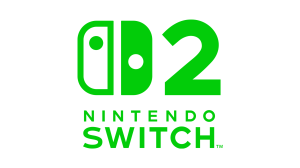Millions of anime fans worldwide will have to find a new way to watch their favorite series after recent crackdowns on piracy. Popular anime piracy websites like GogoAnime, Anitaku, and AnimeFenix as reported by TorrentFreak have recently announced shutdowns due to copyright claims as more legal streaming options consolidate and hope to inherit a share of their audience. With Sony acquiring Funimation and merging it with Crunchyroll, a substantial percentage of anime properties are now housed under one entity.
Videos by ComicBook.com
If fans aren’t willing to pay them in particular, they’ll turn to alternative methods instead of missing out on anime altogether. This becomes an even bigger problem as popular series like One Piece get moved behind a paywall.
Piracy has been a part of the anime community for decades, dating back to when fans used to trade VHS tapes to finish series because there weren’t any better alternatives to keep up with the growing, but still niche, medium. From there, the internet expedited the process so much that millions of people started visiting piracy sites regularly. While piracy will likely never be completely done away with, the tides of the ongoing battle seem to be shifting.
RELATED: Japan’s Using AI to Fight Manga & Anime Piracy

AnimeFenix Leaves Final Message for Fans
According to TorrentFreak’s report, AnimeFenix, which has a predominantly Spanish-speaking audience, released a statement criticizing what it sees as a monopoly in the anime space.
“THANK YOU! To all of you for supporting us in this chapter — As with every story, it has its end. As of today, December 1, AnimeFenix will close forever and the domain will go through the termination process by copyright control agencies,” the website said in a translated message.
“Sony now owns more than 60% of the anime industry with the purchase of Funimation and now also Kadokawa. The call is for you as consumers to be aware of the monopolies that the big companies are creating and, through local regulations in your countries, support policies that protect this art that has given us so much,” the message continued. “[This art] is now in danger of becoming increasingly inaccessible via subscriptions to multiple ‘legal’ content sites that use dubious practices with animators and creators and abusive prices.” AnimeFenix said in their statement.
AnimeFenix went further to say, “Piracy will never go away as long as there are companies with more greed than heart, and we hope that the future will bring changes in these online entertainment paradigms that will contribute to the creation of more series with soul and full of captivating stories that deserve to be supported by the fan communities for their creators.” It’s a bold statement, confident that anime piracy will continue undeterred by recent events.

The Controversial Conversation Around Anime Piracy
Piracy is historically a very controversial topic. It’s present in most entertainment industries and never seems to go away, and creators in the anime community generally frown upon it. For example, this past September, Sota Shigetsugu, known for his illustration work on One Piece, came under fire for giving his opinion on the matter.
“I know the majority of fans are good people, but I often see some fans overseas… eagerly awaiting leaks or expressing thanks to those who leak content. It really frustrates me when I see pirated anime footage being circulated right after they’re released in theaters,” Shigetsugu wrote.
“How many reading and viewing experiences were ruined because of leaks? While those who leak content are obviously terrible, what annoys me even more are the so-called fans who appreciate it,” the animator continued. “Don’t act like it’s something to be enjoyed.”
On the other side of the discussion, TorrentFreak reports that GogoAnime, Anitaku, and AnimeFenix brought in more than a combined 100 million visits a month, signaling that there’s a massive audience for pirated content that either isn’t willing or able to pay to watch it elsewhere. Now it’s a matter of seeing how many, if any, of these now-defunct websites fans will convert to legal content or wait to find the next pirated alternative.
H/T: TorrentFreak








